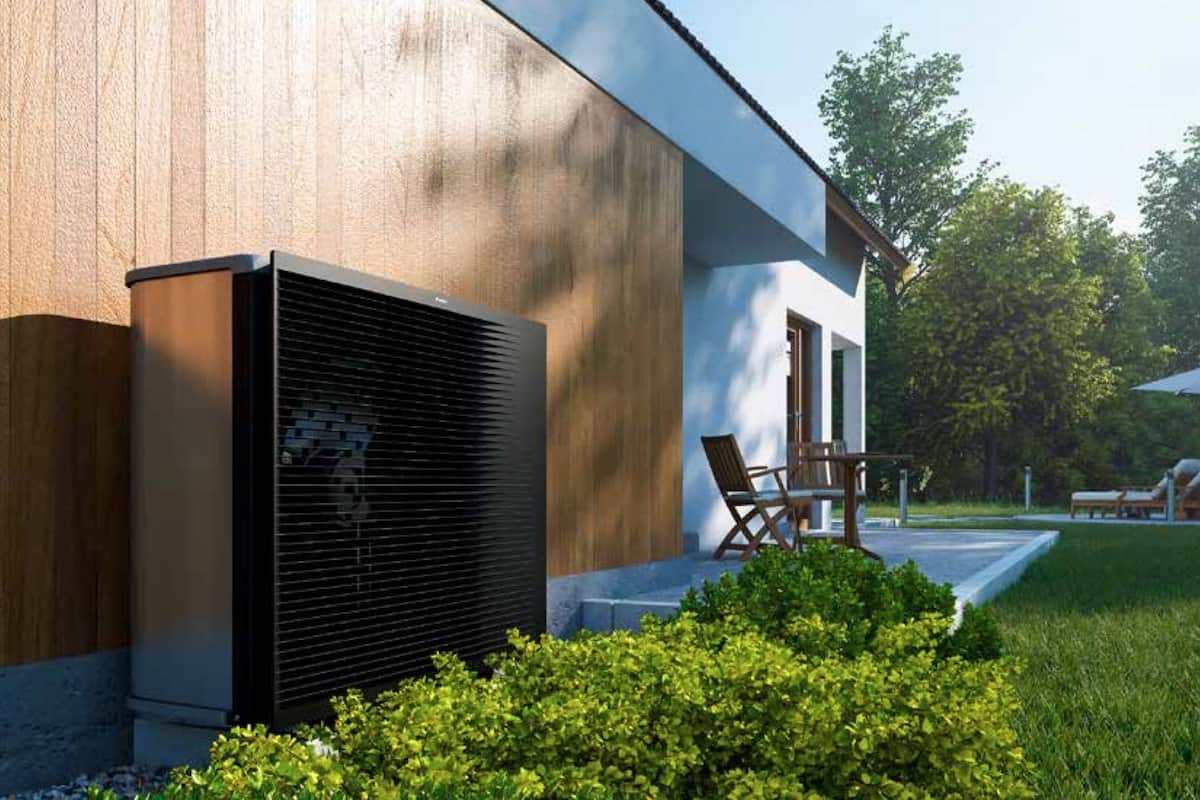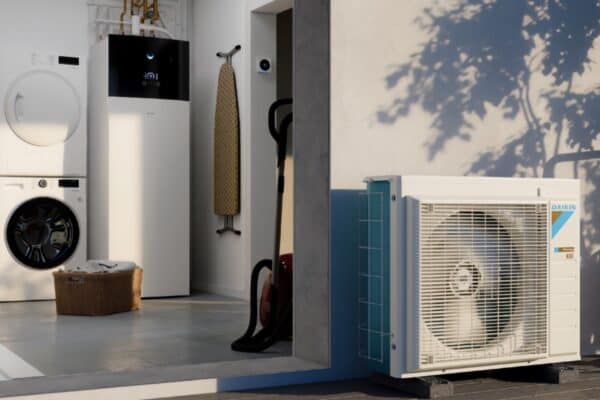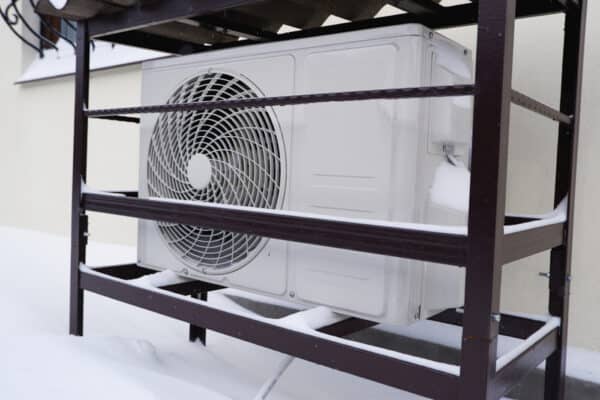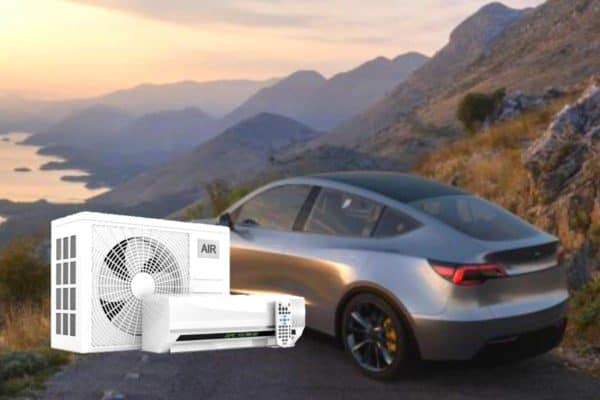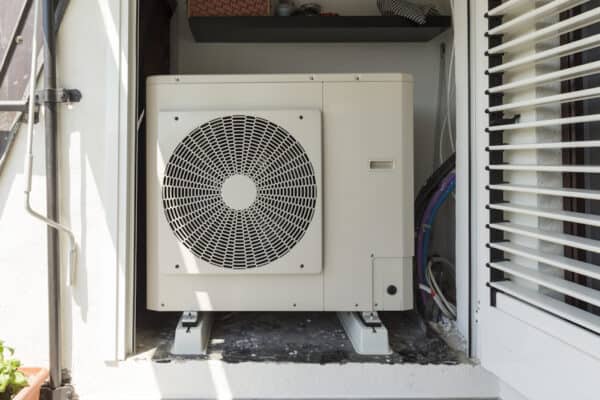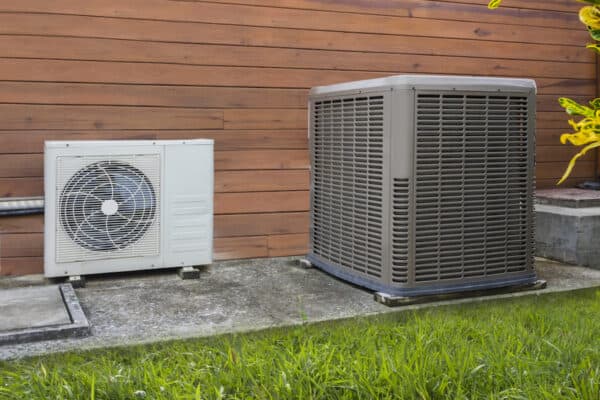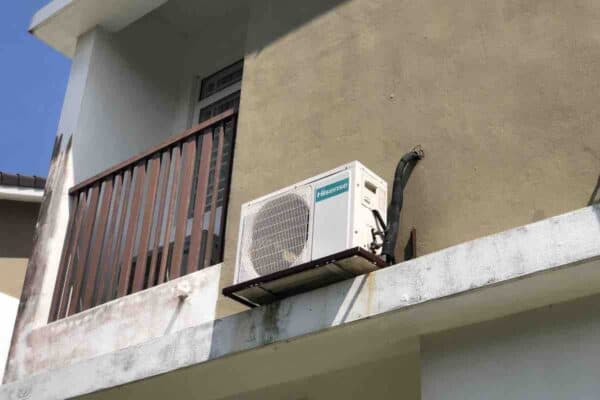Can Air Source Heat Pumps Replace Gas Boilers?
Air source heat pumps are said to be the primary replacement for gas boilers in the United Kingdom. The UK government is giving a grant for homeowners that install an air source heat pump. However, many people concern if an air source heat pump can replace their gas boiler.
It turns out that modern air source heat pumps can indeed replace gas boilers. High-temperature air source heat pumps can produce hot water at a temperature as high as 80°C, eliminating the need to upgrade existing radiators when replacing a gas boiler with an air source heat pump.
Replacing a gas boiler with an air source heat pump may not be as bad as you heard of, especially with the progress of heat pump technology.
What is an Air Source Heat Pump?
An air source heat pump is a type of heat pump that harvests heat from the ambient air. It uses the reversed refrigeration process to provide heating.
Within air source heat pumps, there are two more categories; a) air-to-air and b) air-to-water.
Air-to-air air source heat pumps are used solely for space heating via the wall-mounted air conditioning unit or other types. They harvest heat from the ambient air and provide heating to the indoor air.
On the other hand, air-to-water air source heat pumps are more popular. They harvest heat from the ambient air and produce hot water for both space heating and domestic usage, much like a traditional gas boiler.
Many houses in the UK have a gas boiler that runs on natural gas. It produces hot water that runs through radiators in the house for space heating. At the same time, the hot water produced by the gas boiler is also stored in a hot water cylinder tank.
Air-to-water air source heat pumps also rely on various radiators in the house. They circulate space heating hot water to each radiator and thus, provide space heating. Meanwhile, they also store domestic hot water for later use.
Depending on the air source heat pump model, some keep domestic hot water in a separate hot water tank while others have integration to give you a more compact unit.
Nonetheless, they still have an air source heat pump unit that needs to be placed outside the house.
Some houses have a combi boiler (combination boiler) which is a different type of gas boiler that still runs on natural gas. Unlike conventional gas boilers, combi boilers are capable of providing on-demand hot water or instantaneous hot water.
On the other hand, air source heat pumps can’t provide instantaneous hot water. They gradually increase the water temperature up to the setpoint.
Regardless, both types of gas boilers run on natural gas and now, the UK government had started to phase out gas boilers and ban gas boilers in newly built houses as soon as 2025. In return, the UK government gives a £5,000 subsidy or grant to new installations under the Boiler Upgrade Scheme.
So, many homeowners now are sort of forced to pay more attention to air source heat pumps. Hence, it is important to understand how an air source heat pump can replace your gas boiler.
Air Source Heat Pump vs Gas Boiler
Previously, air source heat pumps couldn’t keep up with gas boilers due to low hot water temperature production. With the progress of heat pump technology, modern air source heat pumps are now arguably on-par with gas boilers regarding heating performance.
Heating Performance
Conventional gas boilers often produce hot water at a temperature of around 70°C. However, it varies from home to home. Some people set their gas boiler at a much higher temperature while others may set at around 60°C.
Many space heating radiators are rated at either dt50 or dt30. Dt50 or delta t 50 means a temperature difference of 50°C between the hot water temperature and the room temperature. At 20°C room temperature, the hot water temperature is 70°C.
Dt50 radiators are almost twice as smaller as dt30 radiators. So, the higher the hot water temperature, the smaller the radiators.
Previous air source heat pumps are only able to produce hot water at a temperature of around 50°C. At 20°C room temperature, dt30 radiators are needed.
In other words, 50°C air source heat pumps would require you to upgrade your existing radiators. Basically, you need to double the size of your existing radiators.
But, if your existing radiators are the single panel type, upgrading them to the double panel type would not take up much of your living space.
Nonetheless, new air source heat pumps like the Daikin Altherma R HT can produce hot water at a temperature up to 80°C. Hence, dt50 radiators can be used by such high-temperature air source heat pumps.
In other words, 80°C air source heat pumps would NOT require you to upgrade your existing radiators and pipes. Basically, you can use back your existing radiators.
Furthermore, air source heat pumps are normally rated at 7°C outdoor temperature. High-temperature air source heat pumps like the Daikin Altherma R HT can even work when the outside temperature drops to -20°C during the winter.
So, in terms of heating performance, an air source heat pump is feasible to replace a gas boiler, considering that existing radiators and pipes don’t need to be upgraded.
Energy Cost
Air source heat pumps normally don’t rely on electric heaters unless they are undersized or the outdoor temperature drop beyond expected. Hence, they generally have good energy efficiency even in low ambient temperature environments.
A typical air source heat pump has a heating efficiency of around COP 3. It means that for every one kW of power input, the air source heat pump produces 3 kW of heating.
Compared to an electric resistive heater which has a one-to-one heating efficiency, the air source heat pump is 3 times more efficient.
However, the electricity cost is often much higher than the cost of natural gas. Hence, the energy cost of air source heat pumps may not be excellent when compared to gas boilers.
But, according to Home Building, the energy cost of air source heat pumps with more than COP 3 is comparable to gas boilers. Furthermore, as natural gas price increases and electricity cost reduces, air source heat pumps may overtake gas boilers in terms of running cost.
If domestic hot water is excluded, space heating can be done via air-to-air air source heat pumps which have a much higher heating efficiency. For instance, the 3.6 kW (heating capacity) Daikin Ururu Sarara air source heat pump has a nominal COP of 5.8.
With such high energy efficiency, replacing a gas boiler with a certain air source heat pump setup may yield a lower monthly energy cost.
Pros and Cons of Air Source Heat Pumps
Although air source heat pumps can replace gas boilers, it is still important to understand some of the drawbacks:
Pros
- Lower carbon footprint
- High energy efficiency
- Reducing electricity cost
- Safety
- Integrated cooling
Cons
- High investment cost
- No instantaneous hot water
- Occupy more space
For most people, the biggest drawback is the cost of purchasing and install one of these high-performance air source heat pumps. As of now, a typical air source heat pump installation can cost about 4-5 times more than a traditional gas boiler.
On average, the installation cost of an air source heat pump is around £11,000 while it is only around £2,500 for a simple gas boiler. However, with the government grant, the installation cost for the air source heat pump can potentially be brought down to around £6,000 which is still high compared to a gas boiler but more appealing.
For a high-temperature high-performance air source heat pump, you may need to pay even more. However, you save on the radiator and pipe upgrade cost if you decided to switch anyway.
A very crucial but often not discussed advantage of air source heat pumps is the fact that they use electricity instead of gas which is not a renewable source of energy. With electricity, you always have the option to use solar to power the air source heat pump, significantly reducing both the carbon footprint and energy cost of your house. In fact, some air source heat pumps integrate solar water heating as well.
In addition, most air source heat pumps can reverse their refrigeration process to provide you with cooling instead of heating. It is a helpful feature for people who occasionally need it.
Although modern gas boilers are generally safe, they are still burning natural gas in the house. There is always a risk of gas leaks and fire. Hence, air source heat pumps are relatively safer.
Despite all the advantages offered by air source heat pumps, many people are still unable to install one due to limited space. Air source heat pumps always required a dedicated place to put the outdoor unit but for the indoor unit, some are extremely compact.
See my post How Daikin Altherma Heat Pumps Work? to learn how much heat pump technology has progressed.
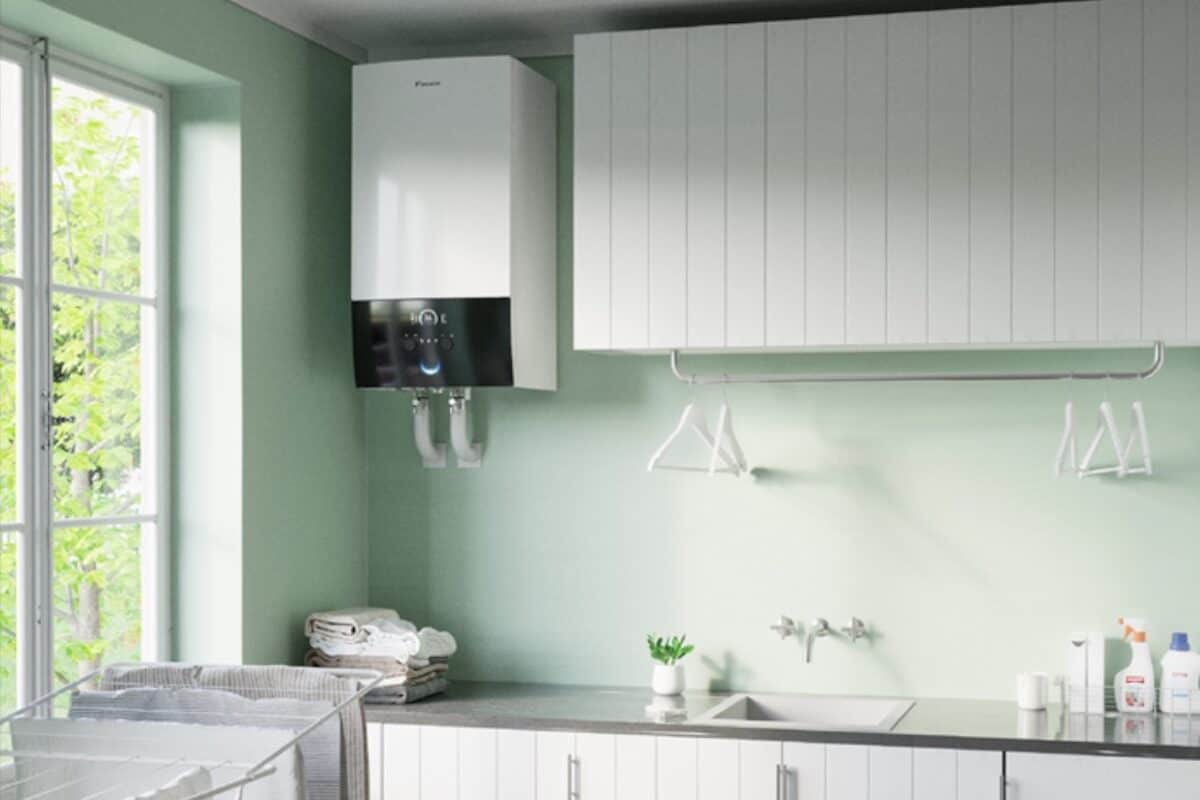
Conclusion
Nowadays, air source heat pumps are an excellent replacement for gas boilers. As gas boilers are phasing out, the cost of maintaining a gas boiler will only go up in the future, not to mention the increasing natural gas price. On the flip side, the world is promoting heat pumps more than ever before. Combine with the decreasing electricity cost or the increasing solar power adaptation, the cost of running an air source heat pump is projected to be more appealing than a gas boiler in the near future.
If you have anything to add (or ask) about this topic, leave a comment down below!


